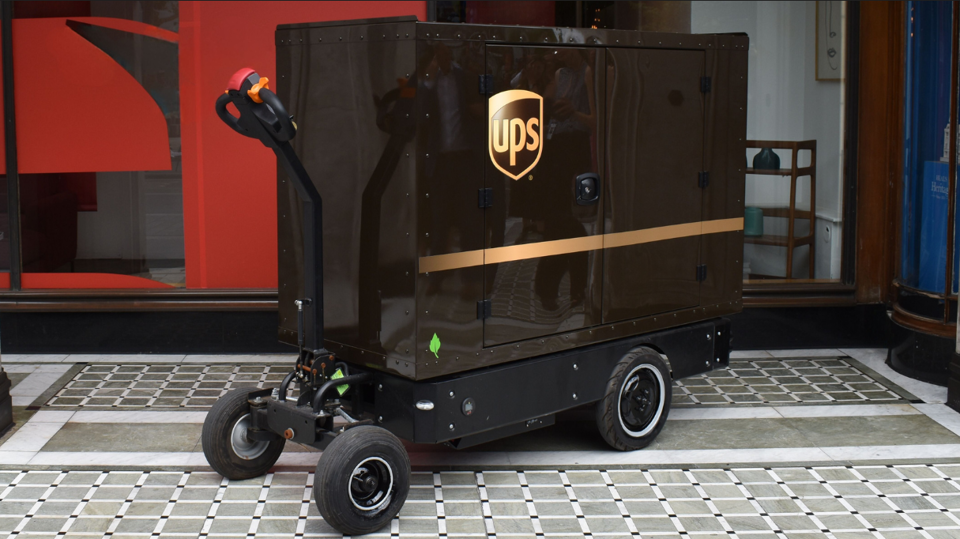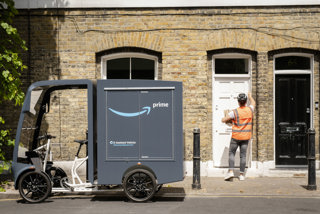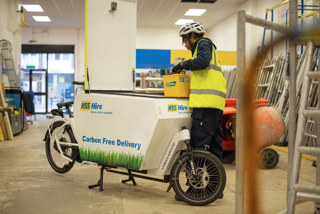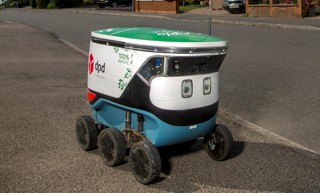Parcel delivery giant UPS has launched its first walking freight trial on public land to support the reduction of emissions and congestion in Fitzrovia, Central London.
The trial, organised by Cross River Partnership (CRP) together with The Fitzrovia Partnership, London Borough of Camden, UPS and Heal’s, is being held as part of the Defra-funded Clean Air Logistics for London project.
It sees UPS deliver packages, such as small consumer goods and personal deliveries, to local residents and businesses on foot utilising an electric-assisted trolley, developed by Fernhay. The trial will continue until September 2024.
Fiona Coull, senior programme manager at CRP, said: “Walking freight has real potential to reduce congestion and improve air quality, particularly in central, high-density locations such as Fitzrovia.
“We look forward to understanding the impacts of the trial, as it’s really important to explore these innovative logistics solutions and share any learnings gained.”
Artur Drenk, international sustainability director at UPS, added: “We are continuing to expand our alternative fuel fleet as we work towards reducing emissions per package.
“We are excited to introduce the electric-assisted walkers, developed by Fernhay, to the streets of Fitzrovia as part of our efforts to serve our customers in urban areas in a more sustainable way.”
The e-walker, which uses a 2.5kWh battery, has a load volume of 1.54cu m. It can make 40 deliveries per journey, delivering for a minimum of four hours per day in Fitzrovia.
Analysis in CRP’s Walking Freight Feasibility Study found overall mileage travelled by light goods vehicles (LGVs) could be reduced by up to 0.4% across Greater London if walking freight was expanded to its full potential in the central activities zone.
The economic benefits of walking freight are estimated to be at least £37 million per year, due to reduced congestion, decarbonisation, improved air quality, minimise noise pollution and reduced road wear.
According to Defra’s Emission Factors Toolkit, CRP estimates that expanding walking freight could reduce London’s carbon by 4.7 million tonnes per year.
























Login to comment
Comments
No comments have been made yet.